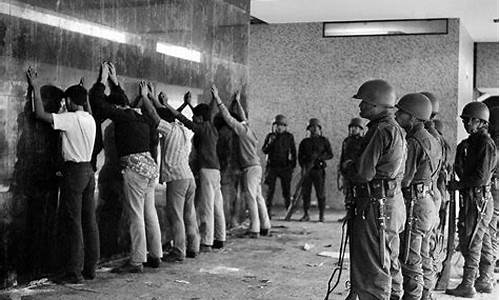您现在的位置是: 首页 > 用车知识 用车知识
noble 发卷_nome卷发棒
佚名 2024-05-31 人已围观
简介noble发卷_nome卷发棒_nome卷发棒大家好,今天我来为大家详细地介绍一下关于noble发卷的问题。以下是我对这个问题的总结和归纳,希望能对大家有所帮助。1.汉字“用”怎么解释用字笔画是多少2.古诗文诵读小学版名言警句3.汉字“雪”怎么解释?雪字笔画是多少4.英语当中的副词和介词各是什么意思?5.大学英语精读第二册第三课Lesso
大家好,今天我来为大家详细地介绍一下关于noble 发卷的问题。以下是我对这个问题的总结和归纳,希望能对大家有所帮助。
1.汉字“用”怎么解释用字笔画是多少
2.古诗文诵读 小学版 名言警句
3.汉字“雪”怎么解释?雪字笔画是多少
4.英语当中的副词和介词各是什么意思?
5.大学英语精读第二册第三课Lesson from Jefferson

汉字“用”怎么解释用字笔画是多少
用yòng使人或物发挥其功能:使用。用心。用兵。用武
可供使用的:用品。用具
进饭食的婉辞:用饭
花费的钱财:费用。用项。用资
物质使用的效果:功用。有用之才
需要:不用多说
因此:用此
UseUsingbywithdispend笔画数:5;部首:用;笔顺编号:35112
笔画顺序:撇折横横竖
详解
用yòng动同本义〖use;employ〗用,可施行也。
《说文》用,以也。
《苍颉篇》利用为大作。
《易·益》五行五用哉。
《虞书》乃攘窃神胝之牺_牺用。
《书·微子》乘其财用出入。
《周礼·宰夫》乃会万民之卒伍而用之。
《周礼·小司徒》保甲之法,起于三代丘甲。管仲用之齐,子产用之郑,商君用之秦,仲长统言之汉,而非今日之立异也。
宋·王安石《上五事札子》皆不足用。
明·魏禧《大铁椎传》用水彩。
蔡元培《图画》兼用激刺
又用篆章。
明·魏学_《核舟记》又如:用不着;备用;实用;拆用;用功;用长;用板;用计;用天因地;用钱;用药任用〖appoint〗不用尚书郎。
《乐府诗集·木兰诗》用于昔日。
诸葛亮《出师表》贤能为之用。
《三国志·诸葛亮传》不能用也。
《资治通鉴》又如:大材小用;重用;叙用;起用;用才;用臣;用行舍藏;用贤运用〖apply〗用间有五:有因间、有内间、有反间、有死间、有生间。
《孙子·用间》又如:用间;用计铺谋;用长;用奇;用思;用智治理;管理〖administer〗仁人之用国,将修志意,正身行。
《荀子》又如:用民出力;效命〖putforthone'sstrength〗国有事,则学民恶法,商民善化,技艺之民不用,故其国易破也。
《商君书》又如:用精需要〖need〗生不用封万户侯,但愿一识韩荆州。
李白《与韩荆州书》又如:不用吃;饮〖eat;drink〗。如:用茶;用膳;用餐;用烟执政;当权〖beinpower〗孔子用于楚,则陈蔡用事大夫危矣。
《史记》行事;行动〖act〗经称鹏之用,其将飞也必待海之运,其飞也必以怒。
明·徐渭《赡张君序》用yòng名功用;功能〖function〗小礼无所用。
《史记·魏公子列传》彼虽善事,其用不足称也。
唐·韩愈《原毁》其用不足称。
唐·韩愈《原毁》灵用不同。
唐·李朝威《柳毅传》其用有二。
〖英〗赫胥黎著、严复译《天演论》又如:用头器用;物质〖material〗地方数千里,兵精足用,英雄乐业,当横行天下。
《资治通鉴》又如:用器费用,资财〖cost;expenses〗给其食用。
《战国策·齐策四》多求妄用。
宋·司马光《训俭示康》兵精足用。
《资治通鉴》裹物之用。
明·李渔《闲情偶寄·种植部》家常之用
用yòng介因;由〖with;on〗觉见卧闻,俱用精神。
《论衡》又如:用逸待劳;用情凭,拿〖relyon〗何用识夫婿。
《乐府诗集·陌上桑》高蝉正用一枝鸣。
宋·洪迈《容斋续笔》因,因为〖becauseof;for〗必用此为务。
《史记·货殖列传》用甲第为国相。
清·周容《芋老人传》用此。
清·方苞《狱中杂记》用yòng连表示结果,相当于“因而”、“于是”〖hence;therefore;thus〗明*于家,用殄厥也。
《书·益稷》又如:用是表示目的,相当于“为了”、“为的是”〖for〗朕及笃敬,恭承民命,用永地于新邑。
《书·盘庚下用兵yòngbīng〖useweaponry〗∶使用兵器立小人以教用兵〖usemilitaryforces;resorttoarms〗∶使用武力,进行战争不敢造次用兵〖commandtroops〗∶调兵遣将,指挥战争长于用兵用兵如神yòngbīng-rúshén〖workmiraclesinmanoeuvringtroops;deploytroopswithgreatskill〗用兵之道,神机莫测。形容善于指挥作战为头一个先生,姓樊名瑞,绰号“混世魔王”,能呼风唤雨,用兵如神。
《水浒传》用场yòngchǎng〖use〗用途;作用这种材料没用场用处yòngchu〖usefulness;use;good〗用途;作用毫无用处用词yòngcí〖wording〗言词的使用或表达用词不当用词不当yòngcí-bùdàng〖inappropriatechoiceofwords〗运用词语不恰当用度yòngdù〖expense;cost;outlay〗费用;开支他家人口多,用度大用费yòngfèi〖expense;outlay;cost〗某事的花销用工夫yònggōngfu〖spendone'sefforts;exertoneself〗为达到某种目的而花费很多的精力和时间肯用工夫用功yònggōng〖hardworking;diligent;studious〗下功夫;努力学习在图书馆里用功用户yònghù〖user;consumer;end-user〗使用人;消费者用具yòngjù〖appliance;utensil;apparatus〗供人使用的器具、工具厨房用具用力yònglì〖putforthone'sstrength;exertoneselfphysically〗花费精力;使劲用力喊叫用命yòngmìng〖obey〗效忠;听命手下将士个个用命用品yòngpǐn〖articlesforuse〗供使用的物品生活用品用人yòngrén〖wakeuseofpersonnel;choosesb.forajob〗∶选用人才善于用人〖beinneedofhands〗∶需要办事人员现在正是用人的时候用人yòngren〖servant〗仆人女用人用舍行藏yòngshě-xíngcáng〖anattitudeoftheConfucianschoolfortheappointment〗《论语·述而》:“用之则行,舍之则藏。”亦称“用行舍藏”。儒家出世入世的观点,即一旦被任命就做官否则就引退用事yòngshì〖beinpower〗∶执政;当权赵太后新用事。
《战国策·赵策》用事擅权〖act〗∶〖凭感情、意气等〗行事;办事方春,少阳用事,未可大热。
《汉书·丙吉传》感情用事〖e〗∶引用典故押韵不必有出处,用事不必拘来历。
《沧浪诗话·诗法》文章用事,不使人觉用途yòngtú〖good;usefulness;use〗应用的方面、范围一种具有多种用途的工具用武yòngwǔ〖useforce〗∶动用或使用武力〖displayone'sabilitiesortalents〗∶发挥才干,施展本领大有用武之地用武之地yòngwǔzhīdì〖play〗犹言用兵之地。宜于打仗的地方。亦喻指能施展武艺或才能的场所这个职务使他的突出的才能大有用武之地用贤任能yòng西安án-rènnéng〖appointthenobleandtalentfortheimportantpost〗任用贤良且有能力的人陛下益养民爱力,用贤任能,疏远奸谀,进用忠鲠,天下悦服,边备日充。
宋·邵伯温《闻见前录》用心yòngxīn〖withconcentratedattention;attentively〗∶集中注意力;使用心力;专心用心听讲上食埃土,下饮黄泉,用心一也。
《荀子·劝学》〖diligently〗∶勤奋、勤勉或用功以精力集中为特征地叹借书者之用心专。
清·袁枚《黄生借书说》用心学习用心yòngxīn〖motive;intention〗想法;居心别有用心用意yòngyì〖purpose;intention〗居心,动机或意图你这么说是什么用意用语yòngyǔ〖choiceofwords;wording〗∶词语的选择或运用用语不当〖terms;phraseologe〗∶某个行业或专业的专门术语商业用语〖verbiage〗∶措辞文电和命令必须使用简明的军事用语
出处
[①][yòng][《__》余_切,去用,以。]使用;任用。施行;实行。_用;听从。指被采用。出力;效命。治理;管理。执政;当权。行事;行动。古代特指杀人以祭或杀牲以祭。适用;适宜。功用;作用。财用;费用。器具;器物。才具。须,需要。使,让。指吃、喝。犹做。犹有。信赖。副词。犹才。方才。副词。犹唯。只有。介词。犹言以。表示凭借或者原因。介词。犹由。表示处所。介词。犹于。表示时间。连词。因而;因此。疑问代词。犹何。表示反问。姓。晋有用绍世。见《希古楼金石萃编》九。
午集上用字部用;康熙笔画:5;页码:页755第24〔古文〕唐_集___正_?余_切,容去_。_文可施行也。易·乾卦初九,__勿用。疏唯宜_藏,勿可施用。_·_陶_天_有罪,五?五用哉。又__使也。左_·襄二十六年惟楚有材,__用之。杜甫_古_才大__用。又功用。易·____仁,藏_用。疏__藏功用,不使物知,是藏_用也。___之用,和__。又_也。_·大禹_正德利用厚生。疏_在上__,不_糜_,以利而用,使_物殷阜。_·王制冢宰制_用,必於_之杪,五_皆入,然後制_用。又以也。_·小雅_夫孔多,是用不集。古_府何用_夫_,白____。又庸也。___四方之民,襁_其子而至矣,焉用稼。又增_器用也。_·微子今殷民乃攘_神_之__牲用以容。_器_曰用。左_·襄二十五年我先王_其利器用也。又__通也。又姓。_有用蚪,_高唐令。又__叶_封切,音容。_·小雅_臧不_,不臧覆用。__新_大化_而不通,道德施而不用。又立__太山_本之宗,仆___世之用。又六_正_周伯琦曰:用,古_字,_也。古?_,商_寅簋_字皆作用,後人借_施用字。考_:〔左_·襄二十五年我先王_其器用也。〕_照原文_其下增利字。
卷三用部编号:2072用,[余_切],可施行也。从卜从中。_宏_。凡用之_皆从用。臣_等曰:卜中乃可用也
古文用。
古诗文诵读 小学版 名言警句
At the time of the British women are hard to obtain a seat in wherever the status, sadly, they almost deprived women enjoy free and happy feelings symbol - love. Countless utilitarian marriage without spouse, women who divorces pair of freedom. But Jane is a dare, not against the existing order to relinquish the mercy of fate, rich new view of women. She and Mr Rochester love is neither of the men, women and men, not women, but the conquest of equality in the emotional communication based on communication, fit and spirit, is a kind of "soul" love for the soul. She said: "I don't need any stranger -- and I have no common language, and for the stranger, I need to fit in with the type is with me, I can get together with their emotional chord." the complete [21] love is equal and mutual exchange, this is the first criterion is Jane's spouse, but also her independent personality. Jane short stature, there is no feminine beauty, but a poor teacher, he won the love, rochester lies in her unique personality and spirit. Jane velvet glove character, transcendental and free from vulgarity temperament, abundant feeling and profound thought deeply attracted rochester, make him with Jane mentally. In Britain, Jane was the first novel by a beauty by beautiful women love men win. But Mr Rochester let Jane go with his love, family property, no relation, is he abandoned the noble prejudice and Jane equality of civilian style, he is trusted to Jane for money and secular ideas with Jane sympathetic disdain. Visible, Jane and the love between the rochester has surpassed the age, conentionalities, property, birth of worldly conception, is the heart and soul of the spirit, and the spirit. Soul and spirit of mutual echo, and attract the equality between men and women is true love.
In a social status of love, so wide that should be Jane, she followed the out-and-out divine principles - self-esteem, self-respect, self-respect. She was no longer in love for the market is selected. Although she is clearly aware and Mr Rochester exists between the gap, but she didn't discouraged or degeneration, but the brave actively pursue love, because she thinks people in spirit and personality is equal in the hierarchical class society there is undoubtedly the dare to social prejudice.
When she found Mr Rochester had a wife, even the wife is crazy woman, she also resolutely left alone, and do not want to do her mistress, rochester say to yourself: "I care about oneself, the more I alone, without friends, the more support, the more I respect myself." [22] is a kind of spirit of Jane's free spirit. She dares to suppress the sorriness free and true love. Especially in rochester, put forward the marriage law when Jane from her loved ones to arms, unwilling to lead the unfair of life. "Jane, calm down," he said, "don't struggle, like a wild bird..." Jane answered: "I am not is thought-provoking, and no bird can bind my net; I was a free man, have their own will, so now I have to leave you," [23] Jane a firm decision because her love and people's real value tightly together, so love sublimated higher realm. She's not evade reality, but to run for worldly conception, in defiance of the bold is higher levels of choice! In Jane, have freedom and moral liberty for women, too severe bound and absolute stagnation will make her pain. By the strong willpower, is in the spirit of "Jane himself firmly in control, so the soul is safe. Namely, hold their personality and spirit of the independent, not by a whirlwind of love. Volume table zheng Jane's words and actions of these broken before the woman passive role, broke through the Victorian women with traditional ethical and moral norms, taboo for her extraordinary performance of love. She started from the patriarchal society in the tender women are given, passive personality break out.
多给点分,5分太少了
汉字“雪”怎么解释?雪字笔画是多少
1、生活是一面镜子。你对它笑,它就对你笑;你对它哭,它也对你哭。
2、活着一天,就是有福气,就该珍惜。当我哭泣我没有鞋子穿的时候,我发现有人却没有脚。
3、人生是个圆,有的人走了一辈子也没有走出命运画出的圆圈,其实,圆上的每一个点都有一条腾飞的切线。
4、千万别迷恋网络游戏,要玩就玩好人生这场大游戏。
5、命运负责洗牌,但是玩牌的是我们自己!
6、我们心中的恐惧,永远比真正的危险巨大的多。
7、命运掌握在自己手中。要么你驾驭生命,要么生命驾驭你,你的心态决定你是坐骑还是骑手。
8、宁愿做过了后悔,也不要错过了后悔。
9、不要拿小人的错误来惩罚自己,不要在这些微不足道的事情上折磨浪费自己的宝贵时间。
10、如果我们都去做自己能力做得到的事,我们会让自己大吃一惊。
11、出路出路,走出去了,总是会有路的。困难苦难,困在家里就是难。
12、学的到东西的事情是锻炼,学不到的是磨练。
13、过错是暂时的遗憾,而错过则是永远的遗憾!
14、环境不会改变,解决之道在于改变自己。
15、勇气是控制恐惧心理,而不是心里毫无恐惧。
16、还能冲动,表示你还对生活有激情,总是冲动,表示你还不懂生活。
17、在实现理想的路途中,必须排除一切干扰,特别是要看清那些美丽的诱惑。
18、人一生下就会哭,笑是后来才学会的。所以忧伤是一种低级的本能,而快乐是一种更高级的能力。
19、两个人共尝一个痛苦只有半个痛苦,两个人共享一个欢乐却有两个欢乐。
20、放弃该放弃的是无奈,放弃不该放弃的是无能,不放弃该放弃的是无知,不放弃不该放弃的是执著!
21、行动是治愈恐惧的良药,而犹豫、拖延将不断滋养恐惧。
22、你把周围的人看作魔鬼,你就生活在地狱;你把周围的人看作天使,你就生活在天堂。
23、人之所以痛苦,在于追求错误的东西。
24、与其说是别人让你痛苦,不如说自己的修养不够。
25、如果你不给自己烦恼,别人也永远不可能给你烦恼,烦恼都是自己内心制造的。
26、好好管教自己,不要管别人。
27、你硬要把单纯的事情看得很严重,那样子你会很痛苦。
28、一杯清水因滴入一滴污水而变污浊,一杯污水却不会因一滴清水的存在而变清澈。
29、运气就是机会碰巧撞到了你的努力。
30、得之坦然,失之淡然,顺其自然,争其必然。
31、时间是治疗心灵创伤的大师,但绝不是解决问题的高手。
32、天道酬勤。也许你付出了不一定得到回报,但不付出一定得不到回报。
33、逆境是成长必经的过程,能勇于接受逆境的人,生命就会日渐的茁壮。
34、只有不断找寻机会的人才会及时把握机会。
35、做一个决定,并不难,难的是付诸行动,并且坚持到底。
36、如果你能像看别人缺点一样,如此准确般的发现自己的缺点,那么你的生命将会不平凡。
37、无论你觉得自己多么的了不起,也永远有人比你更强;无论你觉得自己多么的不幸,永远有人比你更加不幸。
38、背负着过去的痛苦,夹杂着现实的烦恼,这对于人的心灵而言是无任何益处。
40、只有你学会把自己已有的成绩都归零,才能腾出空间去接纳更多的新东西,如此才能使自己不断的超越自己。
41、人生是一条没有回程的单行线,上帝不会给你一张返程的票。
42、对待生活中的每一天若都像生命中的最后一天去对待,人生定会更精彩。
43、活在昨天的人失去过去,活在明天的人失去未来,活在今天的人拥有过去和未来。
44、忍别人所不能忍的痛,吃别人所别人所不能吃的苦,是为了收获得不到的收获。
45、大部分人往往对已经失去的机遇捶胸顿足,却对眼前的机遇熟视无睹。
46、一个懒惰的少年将来就是一褴褛的老人。
47、困难是一块顽石,对于弱者它是绊脚石,对于强者它是垫脚石。
48、笑对人生,能穿透迷雾;笑对人生,能坚持到底;笑对人生,能化解危机;笑对人生,能照亮黑暗。
49、人生最大的悲哀不是失去太多,而是计较太多,这也是导致一个人不快乐的重要原因。
50、我们总是对陌生人太客气,而对亲密的人太苛刻。
51、人的一生就像一篇文章,只有经过多次精心修改,才能不断完善。摘自:读书名言
======================================
**************************************
让人受益的英文名言
1、Genius only means hard-working all one's life. (Mendeleyev Russian chemist)
天才只意味着终身不懈地努力。(俄国化学家 门捷列耶夫)
2、The man who has made up his mind to win will never say "impossible ". (Bonaparte Napoleon ,French emperor )
凡是决心取得胜利的人是从来不说"不可能的"。( 法国皇帝 拿破仑. B.)
3、There is no such thing as a great talent without great will - power. (Balzac)
没有伟大的意志力,便没有雄才大略。(巴尔扎克)
4、Cease to struggle and you cease to live.(Thomas Carlyle)
生命不止,奋斗不息。(卡莱尔)
5、A strong man will struggle with the storms of fate.(Thomas Addison)
强者能同命运的风暴抗争。(爱迪生)
6、Living without an aim is like sailing without a compass.(John Ruskin)
生活没有目标,犹如航海没有罗盘。(罗斯金)
7、Live a noble and honest life. Reviving past times in your old age will help you to enjoy your life again.
过一种高尚而诚实的生活。当你年老时回想起过去,你就能再一次享受人生。
8、Accept what was and what is, and you’ll have more positive energy to pursue what will be.
接受过去和现在的模样,才会有能量去追寻自己的未来。
9、Behind every successful man there's a lot u unsuccessful years. (Bob Brown)
每个成功者的后面都有很多不成功的岁月。(鲍博·布朗)
10、Enrich your life today,. yesterday is history.tomorrow is mystery.
充实今朝,昨日已成过去,明天充满神奇。
11、The secret of success is constancy to purpose.
成功的秘密在于始终如一地忠于目标。
12、Between two stools one falls to the ground.
脚踏两头要落空。
13、You have to believe in yourself. That's the secret of success. (Charles Chaplin)
人必须有自信,这是成功的秘密。(卓别林)
14、Success grows out of struggles to overcome difficulties.
成功来自于克服困难的斗争。
15、The dictionary is the only place where success comes before work.
只有在字典中,成功才会出现在工作之前。
16、There are no shortcuts to any place worth going.
到任何值得去的地方都没有捷径。
17、You're uinique, nothing can replace you.
你举世无双,无人可以替代。
18、Great works are performed not by strengh, but by perseverance.(Samuel Johnson, British writer and critic)
完成伟大的事业不在于体力,而在于坚韧不拔的毅力。(英国作家和评论家 约翰逊. S.)
19、Until you make peace with who you are, you’ll never be content with what you have.
除非你能和真实的自己和平相处,否则你永远不会对已拥有的东西感到满足。
20、If you would go up high , then use your own legs ! Do not let yourselves carried aloft; do not seat yourselves on other people's backs and heads .(F.W .Nietzsche , German Philosopher)
如果你想走到高处,就要使用自己的两条腿!不要让别人把你抬到高处;不要坐在别人的背上和头上。(德国哲学家 尼采. F. W.)
21、Keep trying no matter how hard it seems. it will get easier.
坚持不懈,难也变易。
22、True mastery of any skill takes a lifetime.
对任何技能的掌握都需要一生的刻苦操练。
23、The first wealth is health .(Ralph Waldo Emerson , American thinker)
健康是人生第一财富。(美国思想家 爱默生. R. W.)
24、Where there is life, there is hope.
有生命必有希望。
25、What makes life dreary is the want of motive.(George Eliot)
没有了目的,生活便郁闷无光。(乔治·埃略特)
26、At twenty years of age , the will reigns; at thirty , the wit ; and at forty , the judgment .(Benjamin Franklin ,American president)
二十岁时起支配作用的是意志,三十岁时是机智,四十岁时是判断。(美国总统 富兰克林 . B.)
27、Shallow men believe in luck.Self-trust is the first secret of success.
肤浅的人相信运气,而成功的第一秘诀是自信。
28、I have no secret of success but hard work.
除辛勤工作之外,我别无成功的秘诀。
29、If you fail, don't forget to learn your lesson.
如果你失败了,千万别忘了汲取教训。
30、I have nothing to offer but blood, boil, tears and sweat. (Winston Churchill, British politician)
我能奉献的没有其它,只有热血、辛劳、眼泪与汗水。(英国政治家 丘吉尔.W.)
31、Sweat is the lubricant of success.
汗水是成功的润滑剂。
32、A contented mind is the greatest blessing a man can enjoy in this world.
知足是人生在世最大的幸事。
33、That man is the richest whose pleasure are the cheapest.
能处处寻求快乐的人才是最富有的人。
====================================
************************************
苏教版小学古诗文诵读目录
1 《江南》 乐府民歌 江南可采莲,莲叶何田田。鱼戏莲叶间。鱼戏莲叶东,鱼戏莲叶西,鱼戏莲叶南,鱼戏莲叶北。
2 《敕勒歌》 北朝民歌 敕勒川,阴山下。天似穹庐,笼盖四野。天苍苍,野茫茫,风吹草低见牛羊。
3 《咏鹅》 骆宾王(唐) 鹅,鹅,鹅,曲项向天歌,白毛浮绿水,红掌拨清波。
4 《风》 李峤(唐) 解落三秋叶,能开二月花。过江千尺浪,入竹万竿斜。
5 《咏柳》 贺知章(唐) 碧玉妆成一树高,万条垂下绿丝绦。不知细叶谁裁出,二月春风似剪刀。
6 《凉州词》 王之涣(唐) 黄河远上白云间,一片孤城万仞山,羌笛何须怨杨柳,春风不度玉门关。
7 《登鹳雀楼》 王之涣(唐) 白日依山尽,黄河入海流。欲穷千里目,更上一层楼。
8 《春晓》 孟浩然(唐) 春眠不觉晓,处处闻啼鸟。夜来风雨声,花落知多少。
9 《凉州词》 王翰(唐) 葡萄美酒夜光杯,欲饮琵琶马上催。醉卧沙场君莫笑,古来征战几人回?
10 《出塞》 王昌龄(唐) 秦时明月汉时关,万里长征人未还。但使龙城飞将在,不教胡马度阴山。
11 《芙蓉楼送辛渐》 王昌龄(唐) 寒雨连江夜入吴,平明送客楚山孤。洛阳亲友如相问,一片冰心在玉壶。
12 《鹿柴》 王维(唐) 空山不见人,但闻人语响,返景(yǐng)入深林,复照青苔上。
13 《送元二使安西》 王维(唐) 渭城朝雨浥轻尘,客舍青青柳色新。劝君更尽一杯酒,西出阳关无故人。
14 《九月九日忆山东兄弟》 王维(唐) 独在异乡为异客,每逢佳节倍思亲。遥知兄弟登高处,遍插茱萸少一人。
15 《静夜思》 李白(唐) 床前明月光,疑是地上霜。举头望明月,低头思故乡。
16 《古朗月行》(节选) 李白 小时不识月,呼作白玉盘。又疑瑶台镜,飞在青云端。仙人垂两足,桂树何团团。白兔捣药成,问言与谁餐。
17 《望庐山瀑布》 李白 日照香炉生紫烟,遥看瀑布挂前川。飞流直下三千尺,疑是银河落九天。
18 《赠汪伦》 李白 李白乘舟将欲行,忽闻岸上踏歌声。桃花潭水深千尺,不及汪伦送我情。
19 《黄鹤楼送孟浩然之广陵》 李白 故人西辞黄鹤楼,烟花三月下扬州。孤帆远影碧空尽,唯见长江天际流。
20 《早发白帝城》 李白 朝辞白帝彩云间,千里江陵一日还。两岸猿声啼不住,轻舟已过万重山。
21 《望天门山》 李白 天门中断楚江开,碧水东流至此回。两岸青山相对出,孤帆一片日边来。
22 《别董大》 高适(唐) 千里黄云白日曛,北风吹雁雪纷纷。莫愁前路无知己,天下谁人不识君。
23 《绝句》(其三) 杜甫(唐) 两个黄鹂鸣翠柳,一行白鹭上青天。窗含西岭千秋雪,门泊东吴万里船。
24 《春夜喜雨》 杜甫 好雨知时节,当春乃发生。随风潜入夜,润物细无声。野径云俱黑,江船火独明。晓看红湿处,花重锦官城。
25 《绝句》(其一) 杜甫 迟日江山丽,春风花草香。泥融飞燕子,沙暖睡鸳鸯。
26 《江畔独步寻花》 杜甫 黄师塔前江水东,春光懒困倚微风。桃花一簇开无主,可爱深红爱浅红。
27 《枫桥夜泊》 张继(唐) 月落乌啼霜满天,江枫渔火对愁眠。姑苏城外寒山寺,夜半钟声到客船。
28 《游子吟》 孟郊(唐) 慈母手中线,游子身上衣。临行密密缝,意恐迟迟归。谁言寸草心,报得三春晖。
29 《江雪》 柳宗元(唐) 千山鸟飞绝,万径人踪灭。孤舟蓑笠翁,独钓寒江雪。
30 《渔歌子》 张志和(唐) 西塞山前白鹭飞,桃花流水鳜(guì)鱼肥。青箬笠,绿蓑衣,斜风细雨不须归。
31 《塞下曲》 卢纶(唐) 月黑雁飞高,单于夜遁逃。欲将轻骑(jì)逐,大雪满弓刀。
32 《望洞庭》 刘禹锡(唐) 湖光秋月两相和,潭面无风镜未磨。遥望洞庭山水翠,白银盘里一青螺。
33 《浪淘沙》(其一) 刘禹锡(唐) 九曲黄河万里沙,浪淘风簸自天涯。如今直上银河去,同到牵牛织女家。
34 《赋得古原草送别》 白居易(唐) 离离原上草,一岁一枯荣。野火烧不尽,春风吹又生。远芳侵古道,晴翠接荒城。又送王孙去,萋萋满别情。
35 《池上》 白居易(唐) 小娃撑小艇,偷采白莲回。不解藏踪迹,浮萍一道开。
36 《忆江南》 白居易(唐) 江南好,风景旧曾谙。日出江花红胜火,春来江水绿如蓝。能不忆江南?
37 《小儿垂钓》 胡令能(唐) 蓬头稚子学垂纶,侧坐莓苔草映身。路人借问遥招手,怕得鱼惊不应人。
38 《悯农》(其一) 李绅(唐) 春种一粒粟,秋收万颗子。四海无闲田,农夫犹饿死!
39 《悯农》(其二) 李绅(唐) 锄禾日当午,汗滴禾下土。谁知盘中餐,粒粒皆辛苦。
40 《寻隐者不遇》 贾岛(唐) 松下问童子,言师采药去。只在此山中,云深不知处。
41 《山行》 杜牧(唐) 远上寒山石径斜(xiá),白云生处有人家。停车坐爱枫林晚,霜叶红于二月花。
42 《清明》 杜牧(唐) 清明时节雨纷纷,路上行人欲断魂。借问酒家何处有,牧童遥指杏花村。
43 《江南春》 杜牧(唐) 千里莺啼绿映红,水村山郭酒旗风。南朝四百八十寺,多少楼台烟雨中。
44 《乐游原》 李商隐(唐) 向晚意不适,驱车登古原。夕阳无限好,只是近黄昏。
45 《蜂》 罗隐 不论平地与山尖,无限风光尽被占。采得百花成蜜后,为谁辛苦为谁甜。
46 《江上渔者》 范仲淹(北宋) 江上往来人,但爱鲈鱼美。君看一叶舟,出没风波里。
47 《元日》 王安石(北宋) 爆竹声中一岁除,春风送暖入屠苏。千门万户曈曈日,总把新桃换旧符。
48 《泊船瓜洲》 王安石(北宋) 京口瓜洲一水间,钟山只隔数重山。春风又绿江南岸,明月何时照我还?
49 《书湖阴先生壁》 王安石(北宋) 茅檐常扫净无苔,花木成畦手自栽。一水护田将绿绕,两山排闼(tà)送青来。
50 《六月二十七日望湖楼醉书》 苏轼(北宋) 黑云翻墨未遮山,白雨跳珠乱入船。卷地风来忽吹散,望湖楼下水如天。
51 《饮湖上初晴后雨》 苏轼 水光潋滟晴方好,山色空蒙雨亦奇。欲把西湖比西子,淡妆浓抹总相宜。
52 惠崇《春江晓景》 苏轼 竹外桃花三两枝,春江水暖鸭先知。蒌蒿满地芦芽短,正是河豚欲上时。
53 《题西林壁》 苏轼 横看成岭侧成峰,远近高低各不同。不识庐山真面目,只缘身在此山中。
54 《夏日绝句》 李清照(宋) 生当作人杰,死亦为鬼雄。至今思项羽,不肯过江东。
55 《示儿》 陆游(南宋) 死去元知万事空,但悲不见九州同。王师北定中原日,家祭无忘告乃翁。
56 《秋夜将晓出篱门迎凉有感》 陆游(南宋) 三万里河东入海,五千仞岳上摩天。遗民泪尽胡尘里,南望王师又一年。
57 《四时田园杂兴》(一) 范成大(南宋) 昼出耘田夜绩麻,村庄儿女各当家。童孙未解供耕织,也傍桑阴学种瓜。
58 《四时田园杂兴》(二) 范成大(南宋) 梅子金黄杏子肥,麦花雪白菜花稀。日长(cháng)篱落无人过,唯有蜻蜓蛱蝶飞。
59 《小池》 杨万里(南宋) 泉眼无声惜细流,树阴照水爱晴柔。小河才露(lù)尖尖角,早有蜻蜓立上头。
60 《晓出净慈寺送林子方》 杨万里(南宋) 毕竟西湖六月中,风光不与四时同。接天莲叶无穷碧,映日荷花别样红。
61 《春日》 朱熹(南宋) 胜日寻方泗水滨,无边光景一时新。等闲识得东风面,万紫千红总是春。
62 《题临安邸》 林升(南宋) 山外青山楼外楼,西湖歌舞几时休。暖风熏得游人醉,直把杭州作汴州。
63 《游园不值》 叶绍翁(南宋) 应怜屐齿印苍苔,小扣柴扉久不开。春色满园关不住,一支红杏出墙来。
64 《乡村四月》 翁卷(juǎn)(南宋) 绿遍山原白满川,子规声里雨如烟。乡村四月闲人少,才了(liǎo)蚕桑又插田。
65 《墨梅》 王冕(元) 我家洗砚池头树,朵朵花开淡墨痕。不要人夸颜色好,只留清气满乾坤。
66 《石灰吟》 于谦(明) 千锤万击出深山,烈火焚烧若等闲。粉骨碎身全不怕,要留清白在人间。
67 《竹石》 郑燮(清) 咬定青山不放松,立根原在破岩中。千磨万击还坚劲,任尔东西南北风。
68 《所见》 袁枚(清) 牧童骑黄牛,歌声振林越。意欲捕鸣蝉,忽然闭口立。
69 《村居》 高鼎(清) 草长莺飞二月天,拂堤杨柳醉春烟。儿童散学归来早,忙趁东风放纸鸢。
70 《己亥杂诗》 龚自珍 九州生气恃(shì)风雷,万马齐喑(yīn)究可哀。我劝天公重抖擞,不拘一格降人才。
************************************
====================================
************************************
古诗文名句
1.如切如磋,如琢如磨。(《诗经?卫风?湛奥》)
2.言者无罪,闻者足戒。(《诗经?大序》)
3.它山之石,可以攻玉。(《诗经?小雅?鹤鸣》)
4.投我以桃,报之以李。(《诗经?大雅?抑》)
5.靡不有初,鲜克有终。(《诗经?大雅?荡》)
mǐ bù yǒu chū,xiǎn kè yǒu zhōng
〖解释〗靡:无;初:开始;鲜:少;克:能。事情都有个开头,但很少能到终了。多用以告诫人们为人做事要善始善终。《诗经》有言:“靡不有初,鲜克有终。” 意思是说做人、做事、做官没有人不肯善始,但很少有人善终。
6.长太息以掩涕兮,哀民生之多艰。(屈原(离骚》)
8.吾不能变心以从俗兮,团将愁苦而终穷。(屈原《涉江》)
10.亦余心之所善兮,虽九死其犹未悔。(楚辞(离骚》)
11.其曲弥高,其和弥寡。(宋玉(对楚王问》)
15.辅车相依,唇亡齿寒。(《左传?僖公五年》)
16.武夫力而拘诸原,妇人暂而免诸国。(《左传?僖公三十二年至三十三年》)
22.天网恢恢,疏而不漏。(《老子?七十三章))
23.知人者智,自知者明。(《老子))
25.工欲善其事,必先利其器。(《论语?卫灵公》)
26.往者不可谏,来者犹可追。(《论语?微子))
38.吾生也有涯,而知也无涯。(《庄子?养生主))
42.老吾老,以及人之老;幼吾幼,以及人之幼。(《孟子?梁惠王下))
44.民为贵,社稷次之,君为轻。(《孟子?尽心上))
5l.蓬生麻中,不扶而直;白沙在提,与之俱黑。(《苟子?劝学》)
52.千里之堤,溃于蚁穴。(《韩非子?喻老》)
53.流水不腐,户枢不蠹音:肚,动也。(《吕氏春秋?尽数))
54.独学而无友,则孤陋而寡闻。(《礼记?杂记))
56.玉不琢,不成器;人不学,不知道。(《礼记?学记》)
57.凡事预则立,不预则废。(《礼记?中庸》)
61.桃李不言,下自成蹊。(《史记?李将军列传》)
62.智者千虑,必有一失;愚者千虑,必有一得。(《史记淮阴侯列传》)
65.大行不顾细谨,大礼不辞小让。(《史记?项羽本记》)
66.人为刀俎,我为鱼肉。(《史记?项羽本记》)
67.不鸣则已,一鸣惊人。(《史记?滑稽列传》)
68.文王拘而演《周易》;仲尼厄而作《春秋》;屈原放逐,乃赋(离骚》;左丘失明,厥有《国语》;孙子膑脚,兵法修列;不韦迁蜀,世传《吕览》;韩非国秦,《说难》《孤愤》;《诗》三百篇,大抵贤圣发愤之所为作也。(司马迁《报任安书》)
69.绳锯木断,水滴石穿。(班固《汉书》)
70.水至清则无鱼,人至察则无徒。(班固《汉书?东方朔传》)
72.行百里者,半于九十。(汉(逸诗句风雅逸篇四》)
73.失之东隅,收之桑榆。(范晔(后汉书?冯异传))
75.盛名之下,其实难副。(南朝宋?范晔(后汉书?黄琼传))
77.疾风知劲草,岁寒见后凋 。(范晔《后汉书》)
83 好读书,不求甚解。每有会意,便欣然忘食。(东晋?陶渊明《五柳先生传》)
84.奇文共欣赏,疑义相与析。(陶渊明《移居》)
85.山气日夕佳,飞鸟相与还。(陶渊明《饮酒》)
86.木欣欣以向荣,泉涓涓而始流。(晋?陶渊明《归去来兮辞》)
88.及时当勉励,岁月不待人。(陶渊明《杂诗》)
93.登山则情满于山,观海则意溢于海。(南朝梁?刘勰《文心雕龙》)
94.蝉噪林逾静,鸟鸣山更幽。(南朝梁?王籍〈入若耶溪》)
96.落霞与孤鹜齐飞,秋水共长天一色。(唐?王勃《膝王阁序〉)
98.人世有代谢,往来成古今。(唐?孟浩然《与诸子登岘山》)
105.忽如一夜春风来,千树万树梨花开。(唐?岑参〈白雪歌送武判官归京》)
l07.近乡情更怯,不敢问来人。(唐?李频《渡汉江))
110.清水出芙蓉,天然去雕饰。(唐?李白《论诗〉)
113.孤帆远影碧空尽,惟见长江天际流。(唐李白《送孟浩然之广陵〉)
114.长风破浪会有时,直挂云帆济沧海。(唐李白《行路难))
116.酒债寻常行处有,人生七十古来稀。(唐?杜甫《曲江》)
117.无边落木萧萧下,不尽长江滚滚来。(唐?杜甫《登高》)
119.为人性僻耽佳句,语不惊人死不休。(唐?杜甫《江上值水如海势聊短述》)
120.露从今夜白,月是故乡明。(唐?杜甫《月夜忆弟舍》)
121.出师未捷身先死,长使英雄泪满襟。(唐?杜甫〈蜀相》)
122.笔落惊风雨,诗成泣鬼神。(唐?杜甫(寄李十二白二十》)
123.文章千古事,得失寸心知。(唐?杜甫〈偶题》)
124.正是江南好风景,落花时节又逢君。(唐?杜甫(江南逢李龟年))
125.安得广厦千万间,大庇天下寒士俱欢颜,风雨不动安如山?呜呼!何时 眼前突兀见此屋,吾庐独破受冻死亦足。(唐?杜甫《茅屋为秋凤所破歌》)
126.二句三年得,一吟双泪流。(唐?贾岛《题诗后〉)
128.蚍蜉撼大树,可笑不自量。(唐?韩愈《调张籍》)
129.不塞不流,不止不行。(唐?韩愈《原道》)
131.李杜文章在,光焰万丈长。(唐?韩愈《调张籍》)
132.我有迷魂招不得,雄鸡一叫天下白。(唐?李贺《致酒行》)
133.衰兰送客咸阳道,天若有情天亦老。(唐?李贺《金铜仙人辞汉歌〉)
134.不见年年辽海上,文章何处哭秋风。(唐?李贺《南园》)
===================================
***********************************
===================================
————————以上的这些诗文、格言、警语,都是鄙人刚刚于网上找到的。希望能给你带来一点帮助和教益!特别是后面的这个“古诗文名句选”,都来自于中国古代的名家诗词和文献古籍中。都是为人称道的、精辟的言论。
————————作为小学生的你,但愿你能够好好看看、认真学学,毕竟这对你将来进一步学习古诗词、文言文,都会有相当程度的帮助!
————————当然,另外还有一些相关的网页网址,都被我发送到你的百度账户个人私信信箱里面了。你到时候可以去查收查看。愿你进步,祝你好运!O(∩_∩)O~~
===================================
***********************************
===================================
英语当中的副词和介词各是什么意思?
雪xuě天空中飘落的白色结晶体,多为六角形,是天空中的水蒸气冷至摄氏零度以下凝结而成:雪花。雪山。雪中送炭
洗去,除去:报仇雪恨。为国雪耻。平反昭雪
擦拭:“晏子独笑于旁,公雪涕而顾晏子”
姓
笔画数:11;部首:雨;笔顺编号:14524444511
笔画顺序:横捺折竖捺捺捺捺折横横
详解:
雪xuě
名省声。本义:空气中的水汽,冷却到摄氏零度以下时,就有部分凝结成冰晶,由空中降下,叫做雪)同本义〖snow〗今我来思,雨雪霏霏。
《诗·小雅·采薇》春_气为雨,雨凝为雪。
谢惠莲《雪赋》题注引《五经通训》平地尺为大雪。
《左传·隐公九年》麻衣如雪。
《诗·曹风·蜉虫游》
〖孟冬之月〗行秋令,则雪霜不时,小兵时起,土地侵削。
《礼记·月令》平生所娇儿,颜色白胜雪。
杜甫《北征》诗又如:雪案萤窗;雪里鸿;雪浪纸
形借喻白色〖white〗雪衣雪发青玉嘴,群捕鱼儿溪影中。
唐·杜牧《鹭鸶》君不见高堂明镜悲白发,朝如青丝暮成雪。
李白《将进酒》又如:雪_;雪练;雪花银;雪肌;雪色
形比喻高洁〖nobleandunsillied〗松品落落,雪格索索。
前蜀·贯休《送姜道士归南岳》一别高人又十年,霜筋雪骨健依然。
宋·杨万里诗松品落落,雪格索索。
唐·贯休《送姜道士归南岳》又如:雪格;雪淡姓
雪xuě
动下雪〖snow〗于时始雪,五处俱贺。
《世说新语》又如:雪夜访普;雪峰;雪云洗刷,昭雪〖wipeout;rehabilitate〗大夫种辅翼越王勾践而为之报怨雪耻。
《淮南子·_论》又如:雪正;雪谤擦净;揩干〖wipe〗黍者,非饭之也,以雪桃也。
《韩非子》有言不可道,雪泣忆兰芳。
唐·李白《自溧水道哭王炎》又如:雪泣;雪除;雪烦;雪涕;雪桃
雪白xuěbái
〖snow-white〗洁白如雪雪豹xuěbào
〖snowleopard;snowpanther〗中亚细亚高山上的一种花纹出色的大型猫科动物,在灰白色又长又密的皮毛上,夏季有不规则的黑褐色斑纹,冬季变得几乎纯白雪暴xuěbào
〖snowstorm〗降雪的风暴强风挟带大量雪片飞扬于空中,使能见度一般小于1公里的现象雪崩xuěbēng
〖snowslide〗∶大量的雪块从高山上崩裂下来
〖avalanche〗∶迅速滑下山坡或越过悬崖的大块冰雪雪冰xuěbīng
〖snowice〗由雪的聚结形成的冰由于半融化的雪或冰的冻结而形成的白色多孔的冰雪车xuěchē
〖sledge;toboggon〗雪橇雪尘xuěchén
〖snowdust〗风中所挟带的微粒状的雪雪耻xuěchǐ
〖avengeaninsult;wipeoutadisgrace〗洗雪耻辱报仇雪耻雪堤xuědī
〖snowbank〗雪的小丘或雪坡雪貂xuědiāo
〖ferret-polecat〗一种特别凶恶的貂,是很有价值的捕鼠者,与野生的欧洲鸡貂非常相似,据说是由家养的雪貂与野生的鸡貂杂交产生的雪堆xuěduī
〖snowdrift〗雪的淤积物雪盖xuěgài
〖snowblanket〗积雪的表面,雪能保护和滋润下面的植物雪糕xuěgāo
〖popsicle〗∶冻结在棍棒上的冰糕
〖snow〗∶用蛋白、糖和果肉搅拌制成的白色甜点雪恨xuěhèn
〖wreakvengeance;avengevengenance〗洗掉仇恨报仇雪恨雪花xuěhuā
〖snow-flake〗空中飘落的雪,多呈六角形,象花雪茄xuějiā
〖cigar〗用烟叶卷的烟,比普通香烟粗大雪晶xuějīng
〖snowcrystal〗雪中几种常见冰晶中的任何一种。雪晶是一单晶,与雪花不同,雪花通常是许多单雪晶的凝聚物雪镜xuějìng
〖snowgoggles〗凿有两条窄缝的木片,爱斯基摩人用以预防雪盲雪卷xuějuǎn
〖snowroller〗被风吹卷起的雪堆,通常是圆柱形,两头是凹面雪壳xuěké
〖snowcrust〗在软雪上冻结的脆而坚实的外层雪栏xuělán
〖roofguard〗一种装在屋顶上以防止雪侵袭的下滑设备雪里红,雪里蕻xuělǐhóng,xuělǐhóng
〖potherbmustard〗一种一年生草本植物var.,芥菜的变种,叶子多为长圆形,花鲜**。茎和叶子是普通蔬菜,通常腌着吃雪亮xuěliàng
〖brightassnow〗∶像雪那样明亮的雪亮的日光灯
〖shiny〗∶具有明亮的外表、外观或外貌的雪亮的匕首雪盲xuěmáng
〖snowblindness〗由于眼睛未加保护而暴露于冰雪原野反射的紫外线所引起的畏光及炎症雪泥鸿爪xuění-hóngzhǎo
〖tracesofthepast;humanlifelihenedtothatofbirdsofpassagewithfootprintonthesand〗雪地上偶然留下的鸿雁爪印。比喻往事遗留的痕迹。也指人生际遇不定,踪迹无常雪片xuěpiàn
〖snowblock〗指飘落的雪花雪橇xuěqiāo
〖sled;sledge〗∶一种装在一对滑行装置上的交通工具,常用于雪地或冰上滑行
〖sleigh〗∶一种儿童雪橇
〖bobsled〗∶短雪橇,通常用为由联接器连接起来的一对雪橇中的一个雪桥xuěqiáo
〖snowbridge〗横越冰川中冰隙的雪的桥雪青xuěqīng
〖lilac;palemanve〗浅紫色雪山xuěshān
〖snowmountain〗常年积雪的高山雪上加霜xuěshàng-jiāshuāng
〖onedisasterafteranother;calamitiescomeinsuccessionasfrostisaddedontopofsnow〗再次遭难而受到更严重的伤害雪水xuěshuǐ
〖snowwater〗∶雪化成的水
〖snow-broth〗∶混合的雪和水雪松xuěsōng
〖deodar;cedar〗一种产于东印度的杉木雪线xuě西安àn
〖snowline〗永久雪地的最下线雪冤xuěyuān
〖clearsb.ofafalsecharge;rednessawrong〗洗雪冤屈雪原xuěyuán
〖snowfield;snows〗辽阔的积雪平原;尤指终年积雪雪照云光xuězhào-yúnguāng
〖snowblink〗雪地上面天空中的白色光亮,比冰映光要亮雪中送炭xuězhōng-sòngtàn
〖helpinone’shourofneed〗下雪天送炭给人。比喻在他人急需时给以及时的帮助只有锦上添花,那得雪中送炭。
明·凌_初《初刻拍案惊奇》
出处:
[①][xuě][《__》相_切,入薛,心。]空中降落的白色晶体,多为六角形,是气温降到0℃以下时,天空中的水蒸气凝结而成的。白色。某些白色事物的代称。稻米。唐杜甫《孟冬》诗:“破甘霜落爪,_稻雪翻匙。”清方文《刘藏夫山中送酒米至却寄》诗:“水碓__雪,山瓢__春。”白花。唐独孤及《同岑郎中屯田韦员外花树歌》:“___地吹花_,渭城桃李千_雪。”前蜀牛峤《酒泉子》词:“_得去年,_暖杏_花正_,雪_香,江草_,柳__。”白色的禽鸟。唐卢纶《赋得白鸥歌送李伯康归使》:“似君换得白__,_凭_干雪_池。”唐朱湾《送陈偃赋得白鸟翔翠微》诗:“_中_一_,回_雪孤_。”鱼。唐贾岛《双鱼谣》:“天河___,_我庭中央,掌握尺_雪,劈__有璜。”清吴嘉纪《捉鱼行》:“_翁_篙引上船,倒出喉中片片雪。”白浪。唐温庭筠《拂舞词》:“_伯__不敢上,百川_雪高崔嵬。”白酒。唐李咸用《富贵曲》:“雪暖瑶杯_髓融,_拖象_猩唇_。”白发。前蜀韦庄《清河县楼作》诗:“故人此地_帆去,何_相思雪__。”宋杨万里《病起览镜》诗:“又___雪,___西_。”明唐寅《茂苑》诗:“白日不消_上雪,黄金___中身。”白檀木。唐殷尧藩《赠惟俨师》诗:“__木_聊息影,雪香__不生_。”参见“雪香”。喻高洁。拭擦;洗涤。洗刷,昭雪。表白,表明。光着。参见“雪_”、“雪足”。下雪。指古乐曲。《阳春白雪》。亦泛指高雅的曲调或歌声。斥责,呵斥。太平天_较高级武官女儿的称呼。
戌集中雨字部
雪;
康熙笔画:11;
页码:页1371第29唐_集_相_切__正___切,?音?。_文本作?。凝雨。元命包_凝_雪。_名雪,_也。水下遇寒_而凝,__然下也。埤雅雪六出而成_,言凡草木_五出,雪__六出,_之成_也。_·邶_雨雪其_。
又__除也。__洗也。_子·知北_澡雪而精神。__策得_士_共_,以雪先王之_,孤之_也。
又__拭也。家_以黍雪桃。史_·_食其_沛公遽雪足杖矛,曰:延客入。
又小雪、大雪,?_?名。_後_·律_志。
又山名。後_·明帝__天山_祈_山。一名雪山。
又_春白雪,古曲名。
又姓。正字通明洪武中巡?雪_。
说文解字中没有查到汉字
大学英语精读第二册第三课Lesson from Jefferson
第一节 形容词比较级和最高级的形式
一、形容词比较级和最高级的构成
形容词的比较级和最高级变化形式规则如下
构 成 法 原 级 比 较 级 最 高 级
① 一般单音节词末尾加?er 和 ?est strong stronger strongest
② 单音节词如果以?e结尾,只加?r 和?st strange stranger strangest
③ 闭音节单音节词如末尾只有 一个辅音字母,
须先双写这个辅音字母,再加?er和?est sad
big
hot sadder
bigger
hotter saddest
biggest
hottest
④ 少数以?y,?er(或?ure),?ow,?ble结尾的双音节词,
末尾加?er和?est(以?y结尾的词,如?y前是辅音字母,
把y变成i,再加?er和?est,以?e结尾的词仍
只加?r和?st) angry
clever
narrow
noble angrier
cleverer
narrower
nobler angrest
cleverest
narrowest
noblest
⑤ 其他双音节和多音节词都在前面加单词more和most different more
different most
different
1) The most high 〔A〕 mountain in 〔B〕 the world is Mount Everest, which is situated 〔C〕 in Nepal and is
twenty?nine thousand one hundred and fourty one feet high 〔D〕 .
2) This house is spaciouser 〔A〕 than that 〔B〕 white 〔C〕 one I bought in Rapid City, South Dakota 〔D〕 last year.
3) Research in the social 〔A〕 sciences often proves difficulter 〔B〕 than similar 〔C〕 work in the physical 〔D〕 sciences.
二、形容词比较级或最高级的特殊形式:
1. 三个或三个以上音节的形容词只能加more和most
只能说 more beautiful而不能说beautifuller; 只能说the most beautiful而不能说beautifullest。
但是,以形容前缀?un结尾的三音节形容词不适合上述情况,如unhappy,untidy,我们可以说:unhappier→unhappiest, untidier→untidiest
2. 由?ING分词和?ED分词演变过来的形容词(包括不规则动词如know→known)只能加more或most来表示它们的比较级和最高级
more(most) striking, more(most) interesting, more(most) wounded, more(most)worn等。
4) The drawings 〔A〕 of the old masters 〔B〕 are among the treasuredest 〔C〕 works in museums 〔D〕 .
3. 英语里有些形容词由于其词义而不可能有比较级形式
absolute fatal main right universal
chief final naked simulta- utter
entire foremost perfect neous vital
eternal inevitable possible sufficient whole
excellent infinite primary supreme wooden
第二节 副词比较级和最高级的形式
副词比较级和最高级的变化形式与形容词基本上一样
一般 副词
hard→harder →hardest
fast→faster →fastest
late→later →latest
early→earlier →earliest
特殊 副词
well →better →best
much →more →most
badly →worse →worst
little →less →least 但是,开放类副词即以后缀?ly结尾的副词不能像形容词那样加?er或?est,如
quickly →more quickly →most quickly quietly →more quietly →most quietly
〔注〕: early中的?ly不是后缀,故可以把?y变?i再加?er和?est
第三节 形容词与副词比较级和最高级的基本用法
一、原级比较的基本用法
1. 原级比较由“as+形容词或副词(或再加名词或短语)+as ”构成“原级相同”比较句,表示两者比较;其否定式,即“程度不及”比较句型为“not so(as) +形容词或副词+as”,而且as…as结构前可用just, almost, nearly, quite等表示程度的词修饰
1) Walking briskly for thirty minutes will burn as many calories as .
〔A〕 to run for fifteen minutes
〔B〕 running for fifteen minutes
〔C〕 you run for fifteen minutes
〔D〕 fifteen?minute walking
2) The gorilla(大猩猩), while 〔A〕 not quite as curious than 〔B〕 the chimpanzee(黑猩猩), shows more persistence 〔C〕 and memory retention(记忆力) in solving 〔D〕 a problem.
3) Alaska is twice 〔A〕 as larger 〔B〕 as 〔C〕 the next largest 〔D〕 state, Texas.
2. “as (so)+名词+as+名词”进行名词比较,这时一般情况下有一个表示原级的比较词,但如果第一名词前出现了形容词修饰该词或出现副词修饰谓语,应当用so而不用as
4) Thomas Jefferson’s achievements as an architect rival his contributions a politician.
〔A〕 such
〔B〕 more
〔C〕 as
〔D〕 than
5) I should say Henry is not much a writer as a reporter. (88年考题)
〔A〕 that
〔B〕 so
〔C〕 this
〔D〕 as
二、比较级
1. 比较级由“形容词(副词)比较级+than+…,”构成表示在两者中间一方比另一方“更加…”。连词than后可接句子,也可接名词、代词、名词短语、介词短语、动词、动词不定式、?ING结构和?ED结构,有时也可省去than。
6) Natural mica(云母) of 〔A〕 a superior 〔B〕 quality is cheapest 〔C〕 to obtain than synthetic 〔D〕 mica.
7) She is older than .
〔A〕 any other girl in the group
〔B〕 any girl in the group
〔C〕 all girls in the group
〔D〕 you and me as well as the group
8) Josephine McCrackin joined 〔A〕 the “Santa Cruz Sentinel” in 1905 and, until her death fifteen years late 〔B〕 , remained 〔C〕 active in journalistic 〔D〕 work.
2. 注意than前后两项相比较的人或事物要一致
9) The purpose of the research had a more important meaning for them than .
〔A〕 ours
〔B〕 with us
〔C〕 for ours it had
〔D〕 it did for us
10) Sound travels air.
〔A〕 faster through water than through 〔B〕 faster than through water and
〔C〕 through water faster and〔D〕 where it is faster through water than through
11) Gerbrand von den Feckhout, one of Rembrand’s pupils, followed 〔A〕 the style of his teacher so implicitly that 〔B〕 his paintings 〔C〕 are sometimes confused with his master 〔D〕 .
三、最高级
1. 最高级用于三者以上比较,形容词的结构形式是“定冠词+形容词最高级+名词+表示范围的短语或从句”(如all, of all, of the tree, in the world, that has ever taken place等)
12) The more 〔A〕 fearsome of all the 〔B〕 animals in 〔C〕 the Western 〔D〕 Hemisphere is the grizzly bear.
13) Of all economic 〔A〕 problems, inflation continues to be 〔B〕 a 〔C〕 most significant in its daily impact on 〔D〕 people and business.
14) , the most familiar to general public is the criminal jurisdiction.
〔A〕 All the activities
〔B〕 The activities
〔C〕 Of all the activities
〔D〕 It is the activities
2. 副词的最高级与形容词最高级的区别在于最高级前没有定冠词the
第四节 形容词和副词的特殊表达法
一、形容词与副词的同级比较: 由“as(so)…as”引出,其否定式为“not so…”或“not as…as”,考生还应注意下列含有“as”结构或短语的句子
1. as such:表示上文所指明的事或人
He is a child,and must be treated as such. 他是个孩子,必须被当作孩子对待。
2. as much:表示“与…同量”
Take as much as you like. 拿多少都行。
I would gladly have paid twice as much for it. 就是价格再贵一倍,我也会愿意把它买下的。
He as much as admitted the whole story. 他几乎全部承认了。
3. as many:表示“与…一样多”
I found six mistakes in as many lines. 我在六行中发现了六个错。
二、表示“几倍于”的比较级:用twice (两倍),four times (四倍),ten times (十倍)加上as … as 结构
This one is four times as big as that one. 这个是那个的四倍大。(这个比那个大三倍。) / Our campus is three times as large as yours. 我们的校园比你们的大两倍。 / He has books twice as many as she does. 他的书比她多一倍。
1) The five?year deal obligates 〔A〕 the country to buy nine million tons 〔B〕 of grain a year 〔C〕 , three million more as 〔D〕 the old pact’s minimum.
三、“the same +名词+as”表示同等比较
2) The lens of a camera performs the lens of the eye.
〔A〕 in the same function 〔B〕 the same function as
〔C〕 the function is the same as 〔D〕 and has the same function
3) The elimination of inflation would ensure that the amount of money used in repaying a loan would
have as the amount of money borrowed.
〔A〕 as the same value 〔B〕 the same value
〔C〕 value as the same 〔D〕 the value is the same
四、比较级前可用a little, a bit, slightly, a great deal, a lot,many, much等词语表示不定量,far, completely,still表示程度或更进一步
4) There are now methods for studying color vision in infants than there once were.
〔A〕 more sophisticated than
〔B〕 much more sophisticated
〔C〕 much sophisticated
〔D〕 sophisticated
5) The photographs of Mars taken by satellite are than those taken from the Earth.
〔A〕 clearest
〔B〕 the clearest
〔C〕 much clearer
〔D〕 more clearer
6) Common porpoises(海豚) are usually not considered 〔A〕 migratory, although 〔B〕 some do move 〔C〕 to more warmer 〔D〕 waters in winter.
兼有两种形式的副词
1) close与closely
close意思是"近"; closely 意思是"仔细地"
He is sitting close to me.
Watch him closely.
2) late 与lately
late意思是"晚"; lately 意思是"最近"
You have come too late.
What have you been doing lately?
3) deep与deeply
deep意思是"深",表示空间深度;deeply时常表示感情上的深度,"深深地"
He pushed the stick deep into the mud.
Even father was deeply moved by the film.
4) high与highly
high表示空间高度;highly表示程度,相当于much
The plane was flying high.
I think highly of your opinion.
5) wide与widely
wide表示空间宽度;widely意思是"广泛地","在许多地方"
He opened the door wide.
English is widely used in the world.
6) free与freely
free的意思是"免费";freely 的意思是"无限制地"
You can eat free in my restaurant whenever you like.
You may speak freely; say what you like. 一、介词to的常见用法
1.动词+to
a)动词+ to
adjust to适应,
attend to处理;照料,
agree to赞同,
amount to加起来达…,
belong to属于,
come to达到,
drink to为…干杯,
get to到达,
happen to发生在某人身上,
hold to紧握,
lead to通向,
listen to听,
occur to想起,
object to反对,
point to指向,
respond to回答,
refer to参考;指的是…;涉及,
reply to回答,
see to负责,
stick to坚持,
turn to求助,
write to给某人写信。
b)动词(+sth.)+to+sb.
announce to通知某人, describe to向某人描述, explain to向某人解释, express to对某人表达, mention to提及, nod to向某人点头, report to报告, say to告知, shout to对某人大叫, suggest to对某人提建议,speak to与某人交谈, talk to跟某人谈话, whisper to和某人低声耳语。
c)动词+sth./sb.+ to +sth./sb.
add to增加, compare to比作, carry to运送至, devote to致力于,introduce to介绍给, invite to邀请参加, join to连接到, leave to委托给,reduce to下降至, sentence to判处, take to带到。
2. be +形容词/过去分词+ to
be alive to觉察;晓得,
be attentive to注意;留心,
be awake to知晓,
be blind to缺乏眼光,
be close to紧挨着,
be common to对某人来说很普通,
be contrary to违反;反对,
be devoted to致力,
be deaf to不愿意听,
be equal to有…的力量,
be exposed to暴露;遭受,
be fair to对…公平,
be familiar to对某人来说熟悉,
be grateful to对某人心存感激,
be good to对…有好处,
be harmful to对…有危害,
be important to对…重要,
be kind to友好对待,
be known to周知于,
be married to嫁给,
be moved to转移到,
be near to靠近,
be necessary to对…有必要,
be opposite to在对面,
be opposed to反对,
be pleasant to合某人之意,
be proper to专属,
be polite to礼貌待人,
be rude to粗暴对待,
be relative to与…有关,
be strange to不习惯,
be similar to类似,
be suitable to适合,
be true to忠实,
be thankful to感激,
be useful to对…有用,
be used to习惯。
3.to+名词构成的词组
to a degree在某种程度上, to date到现在为止,to one’s feet跳起来,to one’s mind照…看来, to one’s surprise使…吃惊,to one’s taste符合胃口, to oneself独自享用, to order定做,to the letter不折不扣地, to the point中肯地
二、at的常见用法 at构成的词组比较多,要细心区分。
1.动词+ at
arrive at抵达,call at访问某地, catch at(it)当场抓住, come at攻击, fire at向…开火,glance at瞟一眼, glare at怒目而视, grieve at忧伤,knock at敲,laugh at嘲笑, look at看一眼, pull at拉扯, rejoice at对…高兴,smile at向某人微笑, shoot at朝…射击, stare at怒目而视,thrust at刺向, tear at撕, tremble at颤抖,wonder at吃惊,work at工作。
2. be +形容词/过去分词+ at
be angry at恼怒于, be alarmed at对…保持警觉,be astonished at对…吃惊, be bad at不擅长, be clever at对某事很灵巧,be delighted at高兴,be disgusted at厌恶, be disappointed at对…失望,be good at擅长, be impatient at对…不够耐心, be mad at狂热于,be pleased at对…感到高兴, be present at出席, be satisfied at满意,be surprised at吃惊, be shocked at对…非常震惊,be terrified at受到…的恐吓,be quick at对…很机敏。
3.at+名词构成的词组
at a distance在一定距离,at a loss不知所措, at a time一次,at all一点也不,at any cost不惜一切代价,at best最好也只是,at first起初,at hand手头,at heart在内心里,at home在家;无拘束,at last最后,at least至少,at most最多,at once马上,at present目前。
三、介词on的常见用法
on的用法比较重要,本文介绍它的一些常见用法:
1.动词+on
a)动词+ on要认真区分下面一些词组
act on对…有作用, bring on促使;导致, call on拜访某人,count on依赖, carry on执行,depend on取决, feed on以…为生,figure on料想;推断, go on继续,have on穿着, insist on坚持,keep on继续, lean on依赖, live on以…为生, pull on迅速穿上,put on穿上, switch on接通(电源), take to喜欢;养成;轻易学会,turn on接通(电源), work on操作, wait on侍候。
b)动词+sb.(sth.)+ on +sb.(sth.)
base on以…为基础, congratulate on恭贺, fix on固定, have mercy on怜悯,have pity on怜惜, keep watch on监视, spend on把时间、精力花在某方面。
2.be+形容词+on的词组
be dependent on依赖, be hard on对某人苛刻,be impressed on对…印象深刻, be keen on渴望, be strict on对…严格。
3.on+名词构成的词组
on board乘(车,飞机),on call听候召唤, on duty值班, on earth到底, on fire着火, on foot步行,on guard在岗,on hire雇用,on holiday度假
四、介词in的常见用法
1.动词+in
a)动词+ in
believe in信任, break in碎成,bring in引起;产生;带来, call in下令收回, fill in填充,get in收获, hand in上缴, involve in涉及, lie in在于, result in导致, share in共享,succeed in成功, take in卷起;订阅, turn in归还当局。
b)动词+sb./time/money+ in
help sb. in帮助某人做某事, spare time/money in匀出时间或钱做某事,spend time/money in花时间或钱做某事,waste time/money in浪费时间或钱做某事。
2. be +形容词+ in
be active in活跃于,be absorbed in专心致志, be busy in忙碌, be born in出生于,be concerned in牵涉, be clothed in穿着, be disappointed in对…失望,be diligent in勤于, be experienced in在…有经验, be employed in任职于,be engaged in忙碌, be expert in某方面的专家, be excellent in在…优秀,be interested in对…有兴趣, be lacking in缺乏, be rich in富有,be slow in迟缓, be successful in在某方面成功, be skilled in精于,be strict in严于, be weak in弱于。
3. in +名词
in advance提前,in all总共,in balance总而言之,in bed卧床,in body亲自,in brief简明扼要,in case万一, in charge主管,in danger有危险, in debt负债, in despair失望,in force大量地;有效,in full全部地, in flower开花,in general一般说来,in itself本身, in love恋爱, in order井然有序, in person亲自,in public公开地, in progress有进展, in practice从实践上看, in rags穿着破衣,in research探索, in return作为报答,in ruins一片废墟,in short总之,in theory从理论上看, in trouble有麻烦, in tears眼泪汪汪,in time及时, in turn按顺序, in vain白白地,in view看得见。
五、介词from的常见用法
from的用法可不能小瞧,你不一定知道下面这些词组意义。
1.动词+from
a)动词+ from
come from来自,date from追溯, depart from违背, die from死于, escape from逃出,fall from自…跌落, hang from垂挂, hear from收到来信,learn from向某人学习, return from自某地返回,rise from自…冒出, result from起因于, suffer from忍受。
b)动词+ sth./sb. +from + sth./ sb. /a place
borrow from向…借, choose from选自, excuse from免除, keep from阻止做,prevent from不准做, protect from不受…之害, receive from收到,remove from移动;除去, save from保全;拯救, separate from分离开来,stop from阻止。
2. be +形容词+ from
be absent from缺席,be different from与众不同, be far from更不用说, be hidden from躲避,be made from用…制成, be tired from因…而疲倦。
3.from…to…
from bad to worse每况愈下,from beginning to end自始至终,from cover to cover从头到尾,from China to Peru到处,from day to day一天一天地,from door to door挨家挨户,from end to end从头至尾,from first to last自始至终,from hand to mouth勉强糊家,from head to foot从头到脚,from mouth to mouth广泛流传,from sun to sun从日出到日落,from start to finish从头开始,from top to toe从头到脚,from time to time不时地,from top to bottom彻底地。
六、介词for的常见用法
1.动词+for
a)动词+for
account for解释;说明, answer for对…负责,apply for申请;请求,apologize for为…而道歉, beg for请求, call for要求,care for在意, enter for报名参加, fight for为…而战, hope for希望,inquire for查询;求见, leave for离开某地到另一地, look for寻找, long for盼望,mistake for误认为, plan for计划做某事, prepare for为…作准备,provide for为…提供, reach for伸手去拿, run for竞选, stand for象征,search for搜寻, send for派人去请, speak for陈述意见、愿望, take for当作, wish for希望, wait for等待。
b)动词+sb.+ for +sth.
ask for要求得到,blame for因…责备, excuse for宽恕, forgive for谅解, pardon for原谅,pay for花钱买, praise for称赞, punish for对…进行惩罚,push for催逼,reward for酬谢, thank for对…表示谢意。
2. be +形容词+for
be anxious for急于做, be eager for渴望, be bad for有害于,be convenient for便于, be good for利于, be famous for以…出名,be fit for适合于, be grateful for对…心存感激, be impatient for对…不耐烦,be late for迟到, be necessary for有必要, be ready for作好准备,be sorry for为…而后悔, be responsible for对…负责,be suitable for适合于, be unfit for不适合, be useful for对…有作用。
3.for+名词构成的词组
for all尽管,for a song非常便宜地,for certain确切地,for company陪着,for ever永远,for example例如,for fear以免,for fair肯定地,for free免费,for fun为了好玩,for good永远,for instance比方,for luck祝福,for life终身,for long长久,for nothing白白地,for once有生第一次,for oneself替自己,for pleasure为了消遣,for reason因为…理由,for sale供出售,for shame真不害臊,for short简称,for sport好玩,for sure确切地。
4.动词+副词/名词+for构成的短语
be in for将遇到,make up for弥补,go in for从事,look out for提防,take sth. for granted把…当作理所当然,have an ear for音感好,have a gift for有某方面的天赋。
大学英语精读第二册第三课Lesson from Jefferson导语:大学英语精读选材力求题材、体裁多样,内容丰富有趣并有定的启发性。下面我讲解大学英语精读第二册第三课Lesson from Jefferson,欢迎学习!
TEXT
Jefferson died long ago, but may of his ideas still of great interest to us.
Lessons from Jefferson
Thomas Jefferson, the third President of the United States, may be less famous than George Washington and Abraham Lincoln, but most people remember at last one fact about him: he wrote the Declaration of Independence.
Although Jefferson lived more than 200 years ago, there is much that we learn from him today. Many of his ideas are especially interesting to modern youth. Here are some of the things he said and wrote:
Go and see. Jefferson believed that a free man obtains knowledge from many sources besides books and that personal investigation is important. When still a young man, he was appointed to a committee to find out whether the South Branch of the James River was deep enough to be used by large boats. While the other members of the committee sat in the state capitol and studied papers on the subject, Jefferson got into a canoe and made on-the-spot-observations.
You can learn from everyone. By birth and by education Jefferson belonged to the highest social class. Yet, in a day when few noble persons ever spoke to those of humble origins except to give an order, Jefferson went out of his way to talk with gardeners, servants, and waiters. Jefferson once said to the French nobleman, Lafayette, "You must go into the people's homes as I have done, look into their cooking pots and eat their bread. If you will only do this, you may find out why people are dissatisfied and understand the revolution that is threatening France."
Judge for yourself. Jefferson refused to accept other people's opinions without careful thought. "Neither believe nor reject anything," he wrote to his nephew, "because any other person has rejected or believed it. Heaved has given you a mind for judging truth and error. Use it."
Jefferson felt that the people "may safely be trusted to hear everything true and false, and to form a correct judgment. Were it left to me to decide whether we should have a government without newspapers or newspapers without a government, I should not hesitate a moment to prefer the latter."
Do what you believe is right. In a free country there will always be conflicting ideas, and this is a source of strength. It is conflict and not unquestioning agreement that keeps freedom alive. Though Jefferson was for many years the object of strong criticism, he never answered his critics. He expressed his philosophy in letters to a friend, "There are two sides to every question. If you take one side with decision and on it with effect, those who take the other side will of course resent your actions."
Trust the future; trust the young. Jefferson felt that the present should never be chained to customs which have lost their usefulness. "No society," he said, "can make a perpetual constitution, or even a perpetual law. The earth belongs to the living generation." He did not fear new ideas, nor did he fear the future. "How much pain," he remarked, "has been caused by evils which have never happened! I expect the best, not the worst. I steer my ship with hope, leaving fear behind."
Jefferson's courage and idealism were based on knowledge. He probably knew more than any other man of his age. He was an expert in agriculture, archeology, and medicine. He practiced crop rotation and soil conservation a century before these became standard practice, and he invented a plow superior to any other in existence. He influenced architecture throughout America, and he was constantly producing devices for making the tasks of ordinary life easier to perform.
Of all Jefferson's many talents, one is central. He was above all a good and tireless writer. His complete works, now being published for the first time, will fill more than fifty volumes. His talent as an author was soon discovered, and when the time came to write the Declaration of Independence at Philadelphia in 1776, the task of writing it was his. Millions have thrilled to his words: "We hold these truths to be self-evident, that all men are created equal?"
When Jefferson died on July 4, 1826, the 50th anniversary of American independence, he left his countrymen a rich legacy of ideas and examples. American education owes a great debt to Thomas Jefferson, Who believed that only a nation of educated people could remain free.
NEW WORDSdeclaration
n. document containing an open public announcement 宣言
independence
n. freedom from the control of others 独立
obtain
vt. get through effort 获得
source
n. place from which sth. comes; place where a river starts (来)源;源头
personal
a. done in person; belonging to a person 亲自的;个人的
investigation
n. detailed or careful examination 调查
investigate
vt.
appoint
vt. put (sb.) in a position 任命
appointment
n.
committee
n. a group of people chosen for special duties 委员会
capitol
n. (美国)州议会大厦
canoe
n. light boat moved by a paddle 独木舟
on-the-spot
a. at the place of the action 现场的
humble
a. low in position 地位低下的
origin
n. parentage; birth; beginning 血统;出身;起源
gardener
n. person who works in a garden either for pay or as a hobby 园丁
waiter
n. person who serves food to the tables in a restaurant (男)侍者
nobleman
n. 贵族
dissatisfy
vt. hang over dangerously; utter a threat against 使不满
threaten
vt. hang over dangerously; utter a threat against 威胁
threat
n.
reject
vt. refuse to take, believe, use of consider 拒绝
rejection
n.
nephew
n. the son of one's brother or sister
error
n. mistake; sth. done wrongly
false
a. not true or correct
judgment
n. opinion 判断, 看法
hesitate
vi. feel doubtful; be undecided 犹豫,迟疑不决
hesitation
n.
prefer
vt. like better; choose (one thing) rather than (another) 更喜欢;宁愿
preference
n.
latter
a. nearer to the end 后面的;后半的
n. the second of two persons or things just spoken of 后者
conflict
n. be opposed; clash 冲突
n. disagreement; clash; fight
unquestioning
a. given or done without question or doubt
agreement
n. having the same opinion(s); thinking in the same way 同意;一致的`
criticism
n. unfavourable remarks of judgments 批评
critic
n. person who makes judgments about the good and bad qualities of sth.; person who points out mistakes 评论家;批评者
criticize
vt.
philosophy
n. 哲学
resent
vt. feel angry or bitter at 对...忿恨;对...不满
action
n. the process of doing things; sth. done 行动过程;行动
custom
n. 习惯,风俗
perpetual
a. never-ending; going on for a long time or without stopping 永恒的;连续不断的
constitution
n. 宪法;章程
living
a. alive now 活(着)的
remark
vt. say; comment 说;评论说
n. 话语;评论
evil
n. sth. bad; sin 邪恶,罪恶
a. very bad 邪恶的,坏的
idealism
n. 理想主义;唯心主义
arch(a)eology
n. study of ancient things, esp. remains of prehistoric times 考古学
rotation
n. 轮作;旋转
rotate
v.
conservation
n. protecting from loss of from being used up 保护;保存
conserve
vt.
superior
a. good or better in quality or value 较好的;优的
superiority
n.
existence
n. the state of existing 存在
influence
vt. have an effect on 影响
architecture
n. art and science of building 建筑术;建筑学
constantly
ad. continuously; frequently 不断地;经常地
constant
a.
perform
vt. do, carry out 做,履行
talent
n. special natural ability 才能,天资
central
a. chief; main; most important 主要的
tireless
a. never or rarely getting tired
writer
n. a person who writes esp. as a way of earning money 作家
publish
vt. have (a book, etc.) printed and put on sale 出版
volume
n. book, esp. one of a set of books 卷;册
thrill
vi. have a very exciting feeling 非常激动
self-evident
a. clear without proof 不言而喻的
create
vt. make (sth. that has not been made before) 创造
creation
n.
anniversary
n. the yearly return of a special date 周年纪念日
countryman
n. a person from one's own country 周胞
legacy
n. sth. that one person leaves to another when he dies 遗产
owe
vt. 欠(债等);应把...归功于
debt
n. something owed to someone else 债(务)
educate
vt. train; teach how to read, write, think, etc.
PHRASES & EXPRESSIONSgo out of one's way (to do sth.)
take particular trouble; make a special effort 特地
leave...to
leave sb. in charge of 交托,委托
act on
act according to 按照...行事
leave behind
abandon; fall to take or bring 丢弃;留下,忘带
in existence
existing 存在
above all
most important of all 首先,尤其是
PROPER NAMESBruce Bilven
布鲁斯.布利文
Thomas Jefferson
托马斯.杰斐逊
George Washington
乔治.华盛顿
Abraham Lincoln
亚伯拉罕.林肯
the Declaration of Independence
《独立宣言》
the James River
詹姆斯河
Lafayette
拉斐特
France
法国
Heaven
上帝;天堂
Philadelphia
费城(美国港市)
;好了,今天关于“noble 发卷”的话题就到这里了。希望大家能够通过我的讲解对“noble 发卷”有更全面、深入的了解,并且能够在今后的生活中更好地运用所学知识。









